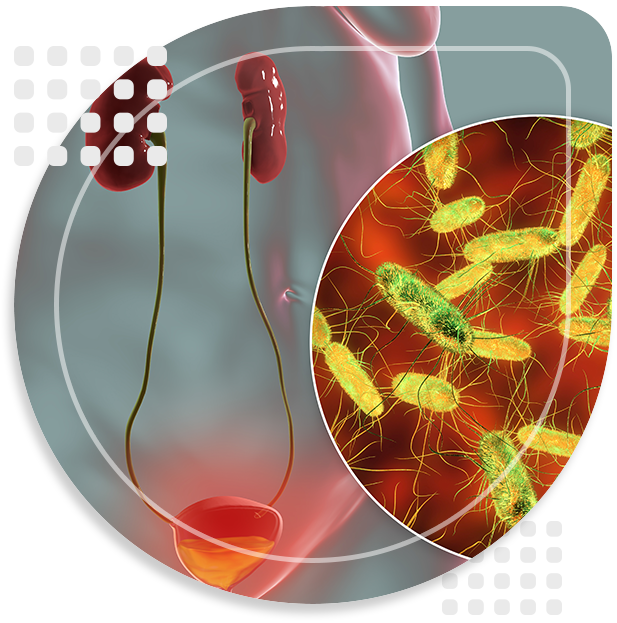Yeast/Bacterial Infections
While many people think of vaginal infections
as being sexually transmitted, some of the most common types of infections are often unrelated to sexual contact and can be caused simply by an imbalance in the natural bacteria in the vagina. The two most prevalent types of these infections are yeast infections and bacterial vaginosis.
A yeast infection is an overgrowth of yeast in the vagina, typically causing symptoms like itching and burning in the genital area, as well as a white, lumpy, and odorless vaginal discharge. While small amounts of yeast are always present in the vagina, other bacteria keep the yeast in control. When these “good bacteria” are reduced, the yeast can increase and cause a yeast infection. This is often caused by taking antibiotics, experiencing an increase in estrogen levels, having uncontrolled diabetes, having a weakened immune system, or engaging in certain types of sexual activity.
Bacterial vaginosis (or BV) is similar to a yeast infection, but it is caused by an overgrowth in normal vaginal bacteria, as opposed to an overgrowth of yeast. Some women with BV don’t experience any symptoms, but those who do have symptoms report a change in vaginal discharge with a “fishy” odor. BV can occur due to certain hygiene practices, like douching or washing with strong and fragranced soaps, which strip away some of the natural vaginal bacteria and upset the balanced environment. However, it can also be caused simply by a woman’s natural bacterial imbalance, or passed between sexual partners, especially when both partners are women.

Yeast infections and BV
can both typically be treated rather quickly and efficiently using either a pill that is taken orally or a topical cream (or both) which you can insert into the vagina. A course of treatment usually lasts anywhere between one and seven days. In most cases, your sexual partner(s) will not need to be treated, although it may also be recommended in some cases, especially for female partners, because these infections can sometimes be passed back and forth during sex.
While vaginal symptoms can be distressing, patients can take comfort in knowing that they aren’t alone, as BV is the most common vaginal infection in the US, and as many as 75% of women will experience at least one yeast infection in their lifetime.
Yeast/Bacterial Infection Treatment
Both a yeast infection and bacterial vaginosis are typically diagnosed during a simple gynecologic exam. Your doctor or provider at Gynecology Associates of Gwinnett will discuss your symptoms and medical history, perform a pelvic exam, and take a vaginal sample to examine under a microscope to perform a culture. This can help us determine if you have an infection, as well as the specific type of yeast or bacteria causing your infection so that we can treat it more effectively. If BV is suspected, we may test your vaginal acidity as well.
Vaginal Infection FAQs
Because these infections can occur simply from natural causes or as a result of necessary medical treatment like antibiotics, they aren’t entirely preventable. However, you can follow these tips below to reduce your risk:
- Wear underwear with a cotton crotch and avoid overly tight clothing.
- Change out of wet clothing (like swimsuits or exercise clothes) promptly.
- Avoid hot tubs and very hot bathwater.
- Don’t overuse antibiotics – only use them when necessary and use exactly as instructed by your doctor.
- Avoid harsh hygiene practices, like douching or using scented or strong soaps in the genital area.
- Practice safe sex, especially with female sexual partners.
- Keep the genital area clean by washing with warm water and non-scented soaps during showers.
- After using the restroom, always wipe from front to back, rather than from back to front.
- Reduce your daily intake of sugar, as high levels of sugar can promote increased yeast production
While some over-the-counter medicines can be effective in some cases, not all bacterial infections are the same, and some symptoms of a yeast infection or BV may actually be a sign of a sexually transmitted infection (STI) or other condition. For this reason, if you are experiencing a change in your vaginal health, it’s best to request an appointment at Gynecology Associates of Gwinnett so that we can accurately diagnose and treat any infection you may have.


